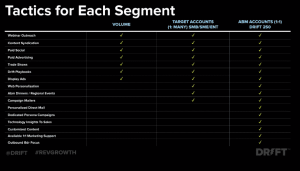Earning $300K but not feeling wealthy? You’re not alone
The salary puts earners in the top 3% in the United States
What does it mean to be rich? That answer might change depending on who you ask.
Jenius Bank, the digital division of SMBC Manubank, surveyed over 4,000 Americans between the ages of 25 and 55 with a household income of $100,000 or more—a number thought by many to reach that “rich” qualifier—to find out.
Here are the key highlights:
- Wealth is in the eye of the beholder: Only 20.4% of responders said they think of themselves as rich, but nearly a third said others believe they are rich. Almost half (46%) of respondents making over $300,000 a year said they don’t see themselves as rich. Roughly a third of respondents defined rich as not having debt, a third as retiring early, and a third as establishing generational wealth. Overall, 40% of respondents said they are less wealthy than they hoped to be at this point in their lives.
- The gender gap persists: 84% of women said they don’t consider themselves rich, compared to 66% of men. Moreover, 47% feel like they are financially behind their generation compared to 32.4% of men, even when their income is similar.
- Lifestyle creep is real: A third of respondents earning $100,000-$125,000 said they can’t cover monthly expenses, and a quarter of respondents earning over $300,000 said the same. A fifth of respondents said their largest one-time payment last year was a vacation, and about 17% said it was credit card debt. Respondents listed media and entertainment, as well as traveling, as the top two luxuries they were least willing to give up.
“In the past, being rich might have meant owning fancy cars and lavish homes, but in today’s world, that definition appears to be shifting toward financial wellness and stability,” the report’s authors wrote.

“Consumers told us that they want the confidence to cover their everyday expenses while creating security for whatever the future holds. To them, ‘richness’ looks like saving to grow their wealth, but also enjoying their life in the moment.”
Correction: An earlier version of this story misstated the percentage of poll respondents who said they feel financially behind their generation. The story has been updated.
ABOUT THE AUTHOR
(8)
Report Post





